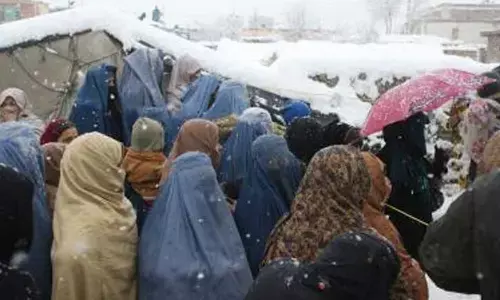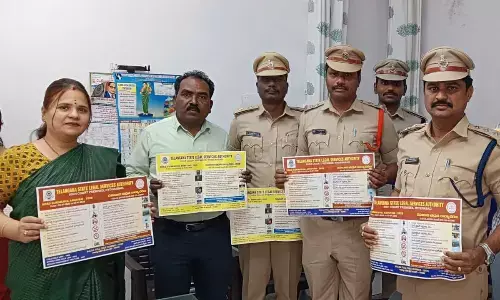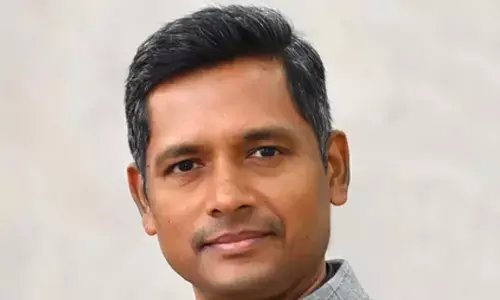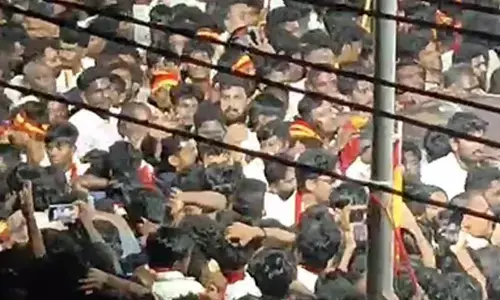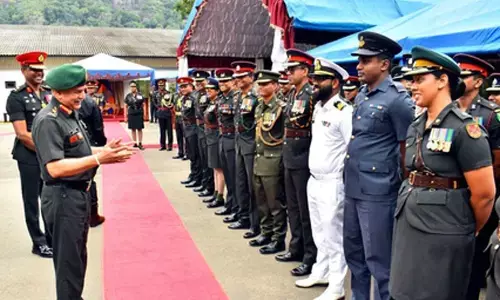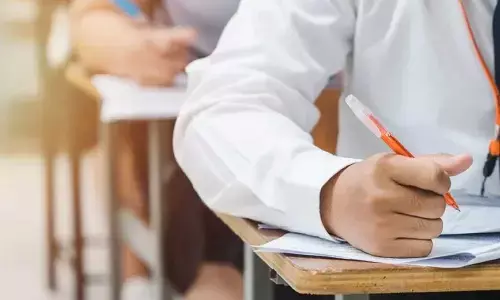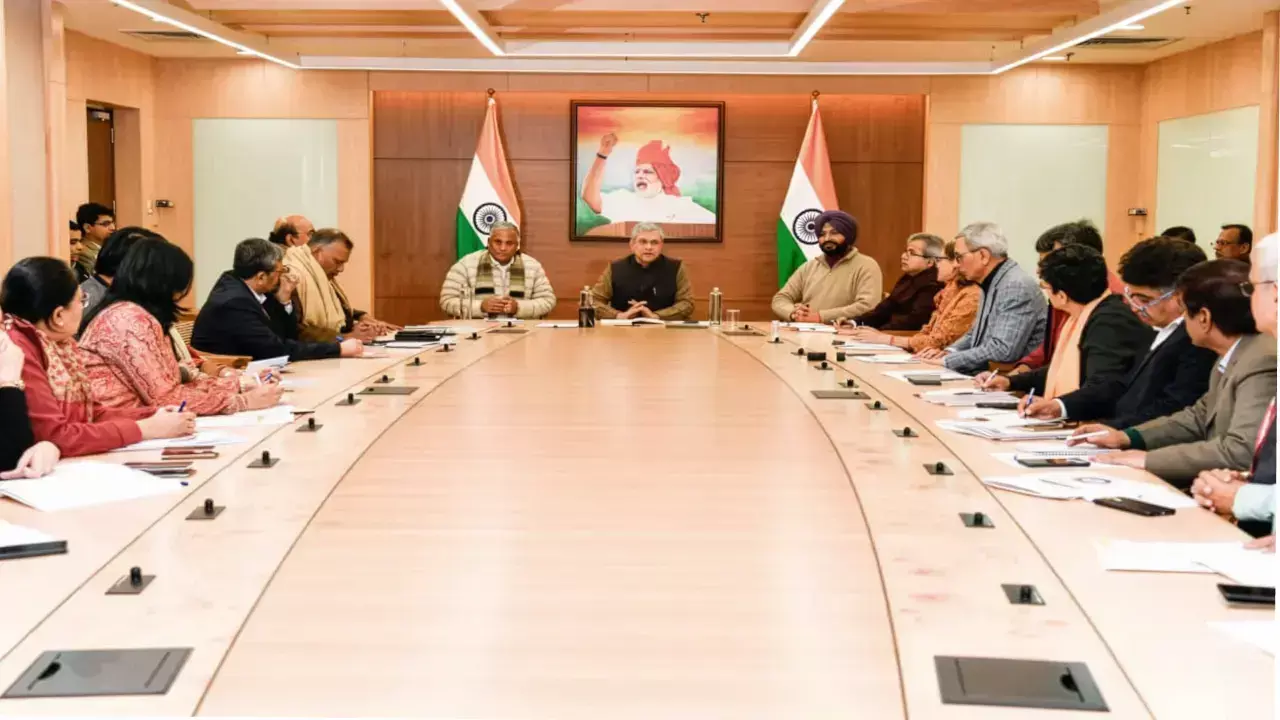K. Kavitha sent to judicial custody till April 23 in excise policy case being probed by CBI
Share :
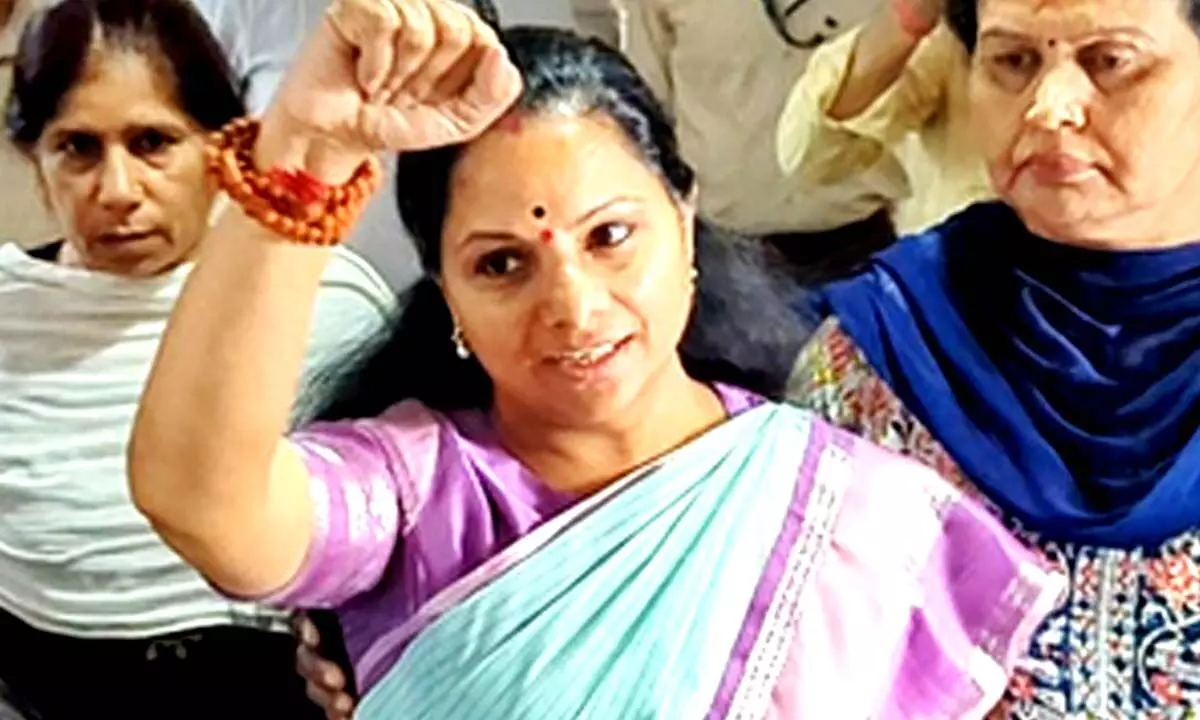
A Delhi court on Monday sent Bharat Rashtra Samithi (BRS) MLC K. Kavitha to judicial custody till April 23, after the CBI claimed that she did not cooperate with the probe and gave evasive replies contrary to the evidence on record.
New Delhi: A Delhi court on Monday sent Bharat Rashtra Samithi (BRS) MLC K. Kavitha to judicial custody till April 23, after the CBI claimed that she did not cooperate with the probe and gave evasive replies contrary to the evidence on record.
In the money laundering case related to the alleged excise policy scam, Kavitha, who is the daughter of former Chief Minister of Telangana, K. Chandrasekhar Rao, was produced before the Rouse Avenue Court on the expiry of her previously granted Central Bureau of Investigation (CBI) custody.
Special Judge Kaveri Baweja sent her to jail in CBI's case till April 23, when her custody in the Enforcement Directorate's (ED) case will also end.
The central probe agency on Monday sought her judicial custody arguing that she could not give a proper explanation for the transfer of Rs.14 crore from the company of Aurobindo Pharma's promoter Sharath Chandra Reddy in the guise of the land deal, and her meetings with the accused Vijay Nair, Magunta Sreenivasalu Reddy.
The agency also claimed that she could not explain the transfer of money to her by the accused Butchi Babu Gorantla, and other acts related to the criminal conspiracy in the formulation and implementation of the Delhi excise policy 2021-22 25.
The agency said that her further CBI custody interrogation is not required at this stage.
"As already submitted in the foregoing paras hat she is deliberately and intentionally evading the just and relevant questions related to the case," it claimed.
Seeking for her to be sent to 14-day judicial custody, the probe agency said: "She, being a prominent politician, is a very influential person as such, there are credible reasons to believe that she may influence the witnesses and the potential witnesses, who are yet to be examined, tamper with the evidence to be further collected and may hamper the ongoing investigation."
It added: "That further investigation is going on and the same is at the very crucial stage. Some crucial witnesses are yet to be examined and documents/digital evidence are yet to be collected."
On April 12, the judge sent her to CBI's custody noting that a "detailed and sustained interrogation" of the accused is necessary.
Based on the submissions and evidence collected by the investigating agency, and after reviewing the Case Diary provided by the Investigating Officer, the court had concluded that it is apparent that a "detailed and sustained interrogation" of the accused is necessary.
The CBI, which arrested Kavitha from the Tihar Jail on April 11, and presented her before a Delhi court the next day, had sought five days' custody on the grounds that witness statements, retrieved WhatsApp chats, and financial transaction documents related to a land deal have implicated her as a major conspirator in a scheme to pay Rs 100 crore to the AAP through accused Vijay Nair and others, in exchange for favourable provisions in Delhi's excise policy.
"The investigating agency has been able to show from the records that custodial interrogation of the accused on certain aspects is necessary for confronting her with the evidence collected so far and also the witnesses in order to unearth the larger conspiracy in the matter," the court had noted.
Judge Baweja had also dismissed an application filed by Kavitha seeking rejection of CBI's request to seek her remand.
The CBI seeking Kavitha's remand in its plea said: "Kavitha was required to be arrested in the instant case to conduct her custodial interrogation for confronting her with the evidence and witnesses to unearth the larger conspiracy hatched among the accused/suspect persons regarding formulation and implementation of the excise policy, as well as to establish the money trail of ill-gotten money generated and to establish the role of other accused/suspected persons including public servants as well as to unearth the facts which are in her exclusive knowledge."







